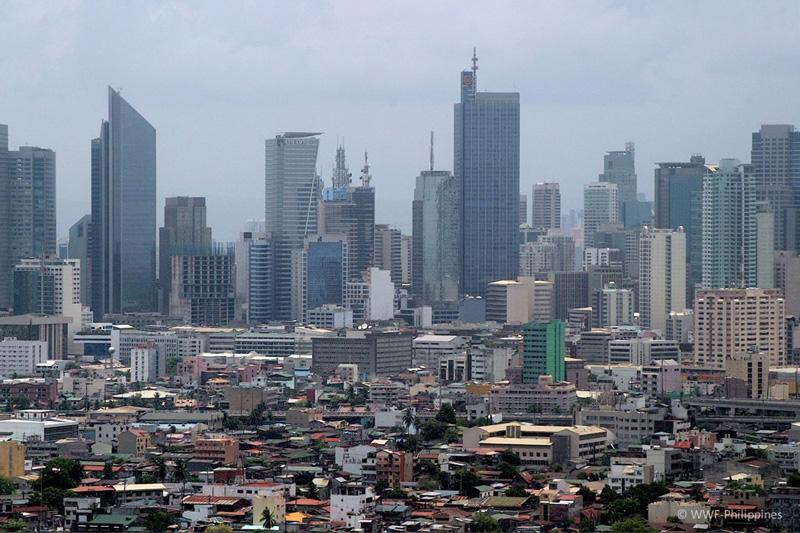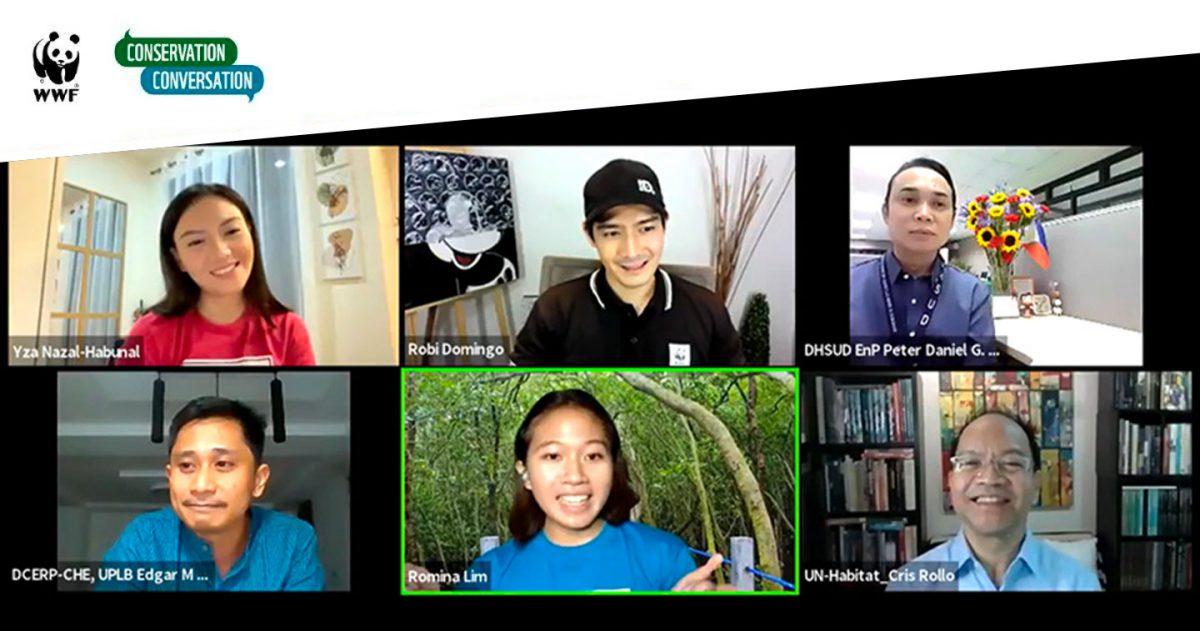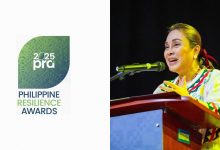MANILA, PHILIPPINES — In order to address the issues posed by rising urbanization, the youth should champion the culture of environmental planning in the Philippines.
This was discussed during the latest episode of the Conservation Conversation webinar organized by the World Wide Fund for Nature (WWF) Philippines’ National Youth Council (NYC) where they were joined by urban planning experts last June 15 to discuss sustainable urban development in the country.
The event was hosted by WWF-Philippines National Youth Ambassador Robi Domingo. NYC members Romina Lim and Yza Nazal represented the youth council during the webinar. They were joined by Environmental Planner Peter Daniel G. Fraginal of the Department of Human Settlements and Urban Development (DHSUD), Environmental Planner Dr. Edgar M. Reyes, Jr., Assistant Professor at the Department of Community and Environmental Resource Planning (DCERP) of UP Los Baños and Christopher E. Rollo, Country Programme Manager of the United Nations Human Settlements Programme (UN Habitat).
“There has been good progress towards making our cities more safe, resilient, inclusive, and sustainable – but more needs to be done to reduce carbon footprints and to prepare for the effects of climate change. Many youths, the torchbearers of the 2030 sustainable development goals, stand ready to make that change possible,” Nazal said.
The webinar discussed key considerations that ought to be made and ways of thinking that ought to be adopted when planning for the sustainable development of cities.
“What values do we infuse when we plan? We make sure that our cities are inclusive, connected, and that they serve everybody, and that it is resilient,” shared Rollo, as he explained what he believes are among the most important aspects in planning a city.

“We have lost a lot of opportunities because of the way our environment has been built over the years, but we can change that over time by following certain principles, approaches, and tools. We also have indigenous knowledge that we have forgotten over the years because we have lost our sense of value when it comes to what is a good, inclusive city,” added Rollo.
The recent Conservation Conversation was also an opportunity for the panelists to promote the field of environmental planning. The Environmental Act of 2013 was passed to train and develop local environmental planners, to provide guidance in the production of Comprehensive Land Use Plans, and to direct the country’s growth sustainably.
“It’s very heartening that there’s an explosion, actually, of licensed environmental planners in the Philippines. Back in the 1990s, there were less than a hundred, but now I think we’re at 6,000. I hope these 6,000-strong environmental planners have it in their hearts and as their passion to help promote a culture of environmental planning,” shared Fraginal.
Cities are an important focal point in both combating climate change and in ensuring the wellbeing of millions. Around 55% of the worlds’ population lives in cities [1]. Cities are in turn responsible for 60% of greenhouse gas emissions [2], and are recognized among experts as being major contributors to climate change.
The panel also stressed the importance of involving the youth in city planning. With fresh perspectives, the youth have an important role to play in ensuring as future leaders and inheritors of today’s cities.
“The youth are like fresh clay in a mold. If we fashion them rightly by equipping them with appropriate knowledge, skills, and even attitude towards achieving sustainable human settlements, then I can imagine a future that is bright and sustainable for everyone,” shared Dr. Reyes as he challenged the youth to build their knowledge on sustainable development and to organize and take up the advocacy.
NYC’s Nazal rallied her fellow youths to continue in raising the bar in advocating for environmental and sustainability issues.
“Let us continue pursuing our individual and collective efforts to switch to green lifestyles while calling on our local and national governments to pursue more sustainable urban development policies. Support WWF-Philippines, and help build a climate-smart future,” Nazal said.
______________________________________________________________________
[1] The United Nations – Department of Economic and Social Affairs: 68% of the world population is projected to live in urban areas by 2050, says UN. http://bit.ly/UNurbanization
[2] The United Nations – Climate Action: Cities and Pollution http://bit.ly/UNCitiesPollution
[3] Watch the full episode of Conservation Conversation on this link.








